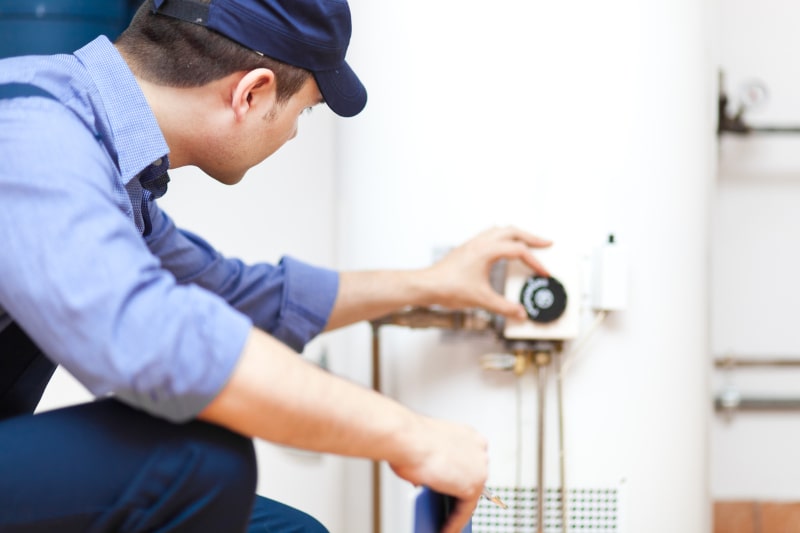You probably rely on the water heater in your Beeville, TX, home every day for tasks like bathing and cleaning your dishes. It’s important to keep it running properly so that there are no delays in attending to daily chores. Read on to learn how you can help to extend your water heater’s lifespan.
Schedule Routine Maintenance
Your water heater is an appliance you use daily, so it makes sense that regular maintenance helps keep it working in optimal condition for as long as possible. You should have our professionals come in once a year to inspect it and handle any needed maintenance and cleaning.
They will look at the different components and make sure that none of them are malfunctioning. Our professionals will also check for leaks and flush the tank.
This annual appointment is important because it can tackle any issues that could cause your water heater to fail. It also helps to prevent corrosion, which could lead to the premature failure of this appliance.
Install a Water Softener
Hard water has high levels of magnesium and calcium, and when these minerals accumulate in your water tank, the buildup of sediment can accelerate corrosion. A water softener helps to reduce mineral deposits so that related issues are less likely. When sediment accumulation and corrosion aren’t major issues, your water heater becomes more efficient, which helps increase its lifespan.
Monitor and Adjust the Temperature
The average recommended temperature for a water heater is 120 degrees Fahrenheit. However, check the manufacturer’s guidelines to ensure the best temperature for your unit.
When you set the temperature too high, this can accelerate corrosion and the buildup of minerals inside your tank. Keeping it at or around the recommended temperature may help prevent buildup from forming as quickly, keeping your tank in better condition overall.
Replace the Anode Rod
The anode rod is a component that helps to protect your tank against corrosion. It does this by attracting elements that can cause it.
You should keep an eye on this rod and make note of any signs of deterioration or corrosion. If it’s in poor condition, have a plumber replace it. This will help to prevent issues that could lead to premature water heater failure.
Flush the Tank Regularly
Even with routine maintenance, sediment can still build up over time in your water heater tank. This could lead to damage and reduce its efficiency. On average, you should flush the tank about once a year.
In some cases, you will need to flush the tank more often. Once our plumbers inspect your water heater, they will be able to give you a more accurate recommendation regarding how often to flush the unit according to your water heater’s specific needs.
Insulate Hot Water Pipes
Insulating hot water pipes helps to maintain the temperature of the hot water as it travels through your pipes. Keeping the water hot as it travels to its destination will generally decrease the amount of work the heater has to do, minimizing its energy consumption. Because it has to work less hard, there will be less strain on the parts, increasing how long they’ll function.
Avoid Overworking the Water Heater
The harder you work your water heater, the more stress and strain you’re putting on it. This wear and tear could lead to premature failure.
Monitor your household water usage and try to spread it out throughout the day instead of using a lot of water in a short period. This will help to promote energy efficiency and a longer lifespan by preventing excessive cycling.
With regular maintenance and the right combination of care methods, you can help prolong the lifespan of your home’s water heater. It’s also vital to schedule repairs promptly when issues occur. To learn more about keeping your water heater in good condition, call Bodine-Scott Air Conditioning & Plumbing Co. today.
Image provided by iStock


